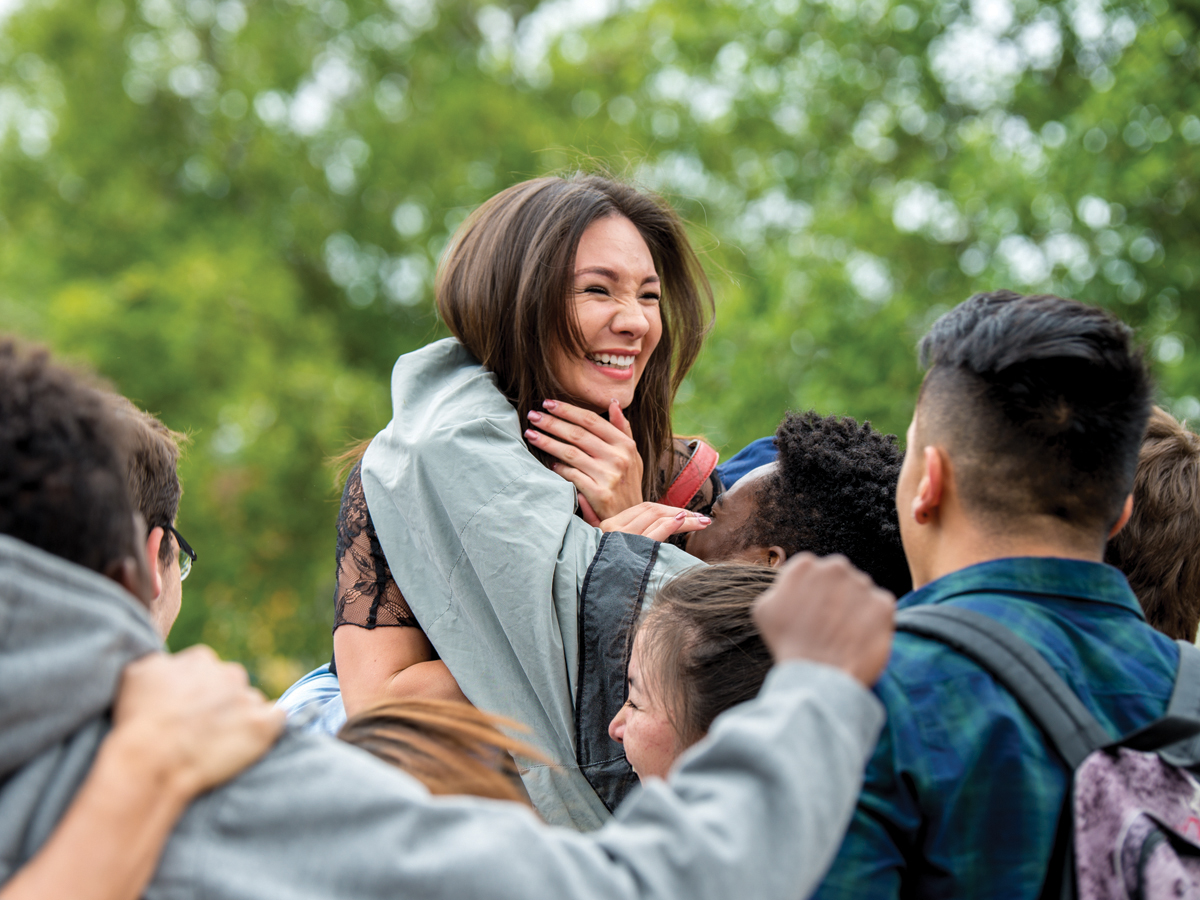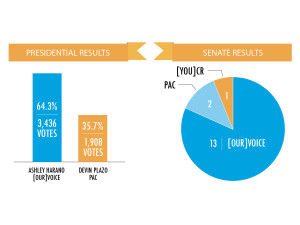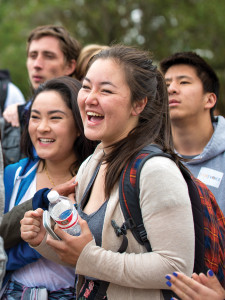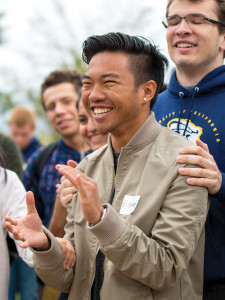
After a bruising month of elections filled with controversial campaigning and accusations of partisan bias, [OUR]Voice will take office later this year in a crushing victory, seizing control of all executive and director positions as well as 13 out of 16 senate seats. Students also voted on several referendums that are set to take effect next academic year.
[OUR]Voice presidential candidate and current personnel director Ashley Harano took the 2015-2016 ASUCR presidency, winning the office over PAC candidate and current president pro tempore Devin Plazo 3,436 votes to 1,908 votes, taking 64.3 percent to Plazo’s 35.7 percent.
“As I am now elected, it is my duty to see through that these promises are kept to our students and that I represent and empower each student here at UC Riverside,” Harano said. “I am thankful that the student’s voice was heard, and with the approval of appeals from the Justices, I am proud that the student vote still mattered at UCR.”
“Running a party is no easy task, but I’ve had the pleasure of working with the most honest and conscious individuals running,” Plazo said. “It’s UCR’s loss that these individuals were not elected.”

The races for executive cabinet were also disappointing for PAC and [YOU]CR. In the race for executive vice president, [OUR]Voice’s Armando Saldana reclaimed his seat after losing last year’s presidential race, earning 56.1 percent of all ballots cast, and defeating runner-up Taylor Valmores of PAC and Nilan Gunewardena of [YOU]CR, who came in a distant third. Similarly, current Executive Vice President Michael Ervin will rejoin ASUCR next year as vice president of internal affairs, dispatching his only opponent, PAC candidate Valeria Allende, by a 62.8-to-37.2 percent margin.
The closest executive cabinet race was that for vice president of external affairs. Mohamed Hussein of [OUR]Voice easily took the office with 55.1 percent of the vote, defeating Neftali Galarza of PAC and Senator Summer Shafer of [YOU]CR.
[OUR]Voice candidates experienced similar levels of success for the director positions, as they went three for three. Emily Yang will take office as next year’s personnel director, Kevin Chau will become the next outreach director and Katherine Cheng will oversee ASUCR’s marketing efforts as the next marketing and promotions director.
In the downballot senate races, [OUR]Voice candidates won every race they competed in, winning one of two BCOE seats, two of four CNAS seats and all 10 CHASS seats to own a three-fourths majority in the senate. PAC won one BCOE seat and one CNAS seat, while [YOU]CR managed to scrape off a single CNAS seat.
Nicolas Alves, a third-year business major, voted for candidates from all three parties, but added that he appreciated [OUR]Voice reaching out to students on a consistent basis.
Second-year sociology major Brenda Tigerino, on the other hand, voted for PAC. “I didn’t like the other parties, because when they came up to me, they told me I had to vote,” she said.
The results come after four weeks of campaigning that at times turned harsh, with accusations of illegal campaign activities such as laptopping, duelling allegations of partisan bias on the part of members of ASUCR and the censure of elected officials. An especially contentious moment came when the elections committee disqualified the entire slate of [OUR]Voice candidates, resulting in mass disruptions occurring during a meeting last Wednesday. The ruling was later overturned by three members of the judicial council.

Elections Director Stephanie Rose disagreed with the judicial branch’s decision, feeling that the branch failed to clearly explain why the appeals were accepted. “Perhaps if they provided a more clear and thorough analysis, I would understand their decisions,” Rose said.
Highlanders also voted on four different referendums on this year’s ballot. After a narrow 3-point loss last year, students approved of the Highlander Empowerment Referendum by 56.1 percent, 2,685 votes to 2,089 votes. The measure will increase funding for seven campus diversity organizations, such as Chicano Student Programs and Native American Student Programs, via a $14 student fee.
Nancy Tubbs, director of the LGBT Resource Center, explained that “passage of the referendum means we can keep a critical staff position. It means we can start planning with students our programs and services for next year from a secure place.”
Students also approved two amendments to the ASUCR constitution. Constitutional Amendment No. 1, which changes the way the elections director and vice president of finance are selected in addition to other revisions, was supported by 66.7 percent of students. 2,938 students voted in favor and 1,463 voted against. Constitutional Amendment No. 2 was also approved by 73.1 percent of the vote, the largest margin of any of the four referendums, and will result in the creation of a transfer/nontraditional student director that will sit in the ASUCR senate chambers. 3,412 students voted to support the amendment and 1,200 students opposed it.
The only ballot measure that failed to pass was the CALPIRG Initiative, which went down to a narrow defeat by 231 out of 4,741 votes, or just 4.8 percent of all votes cast. The initiative would have been a purely nonbinding reflection of student opinion on adding a $2.50 student fee to support CALPIRG’s UCR chapter.
Student turnout numbered 35.1 percent this year, down from last year’s record high of 38 percent, but still above average and far above the 20 percent threshold required to make elections results official.

“I’m very proud of the work the candidates did to advertise Elections and achieve such a high voter turn out,” Rose said, explaining that turnout was maintained despite decreasing the elections season to four weeks.
However, others were unsatisfied and thought improvements needed to be made.
“I just feel like now it sets a precedent … for how much faith I put in ASUCR, which is very little,” Kat Zoque, a second-year ethnic studies and gender and sexuality studies double-major. “Now I have less of a reason to organize through ASUCR.”








